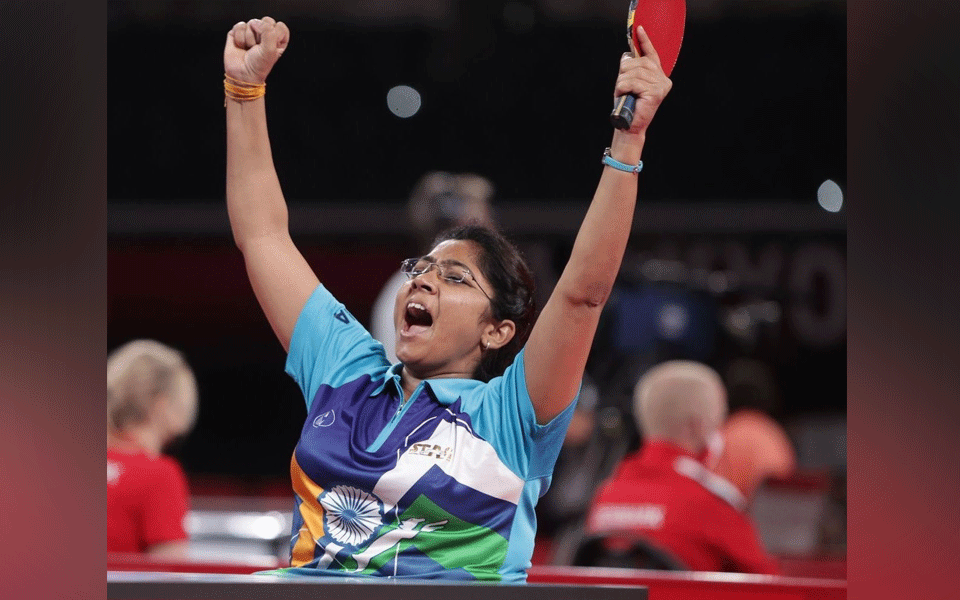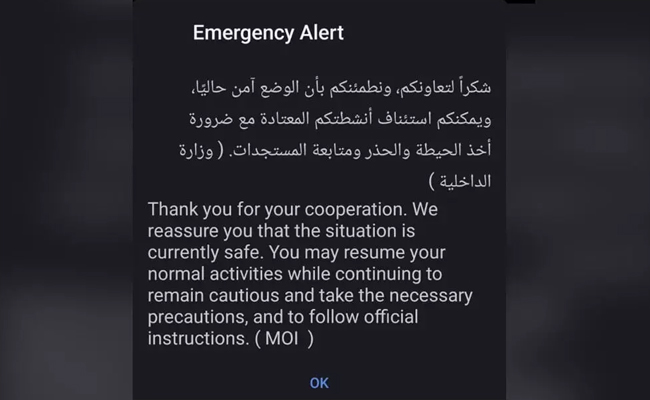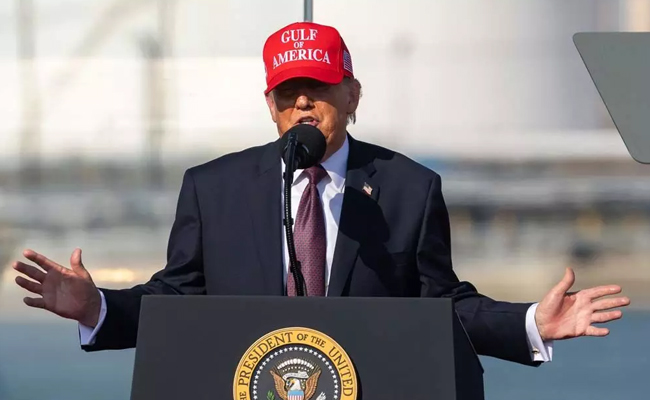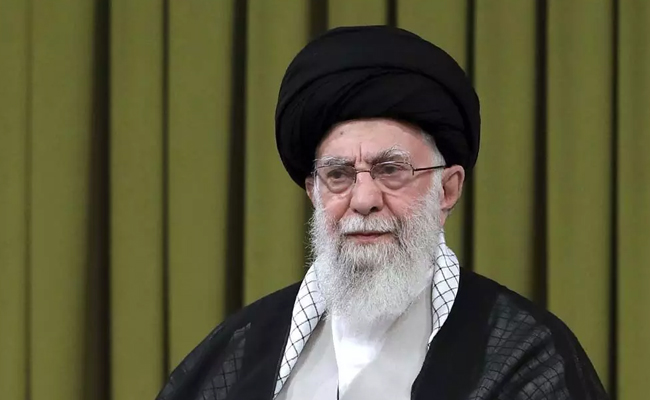Tokyo (PTI) : Bhavinaben Patel continued to script history as she became the first Indian to enter the final of a table tennis event in the Paralympics with a hard-fought 3-2 win over China's Miao Zhang in a class 4 semifinal here on Saturday.
The 34-year-old Patel, who had surprised even the Indian camp in this Paralympics with her sensational show, stunned her world no. 3 Chinese opponent 7-11 11-7 11-4 9-11 11-8 in the semifinal showdown that lasted 34 minutes.
She will take on world number one Chinese paddler Ying Zhou in the summit clash on Sunday.
Daughter of Hasmukhbhai Patel, a small time shopkeeper at Sundhiya village in Gujarat's Mehsana district, she was not considered a bright medal prospect coming into the Games but she has made her maiden Paralympics a memorable one.
"When I came here, I just thought that I would give my 100 per cent without thinking of anything. If you give 100 per cent, the medal will come, that was what I thought," said Patel, who was diagnosed with polio when she was a 12-year-old.
"If I continue with this confidence with the blessings of the people of my country, I think I will win gold tomorrow. I am ready for the final and I have to give 100 per cent in the final also."
Patel, who plays in a wheelchair, lost the opening game in a tight contest. But, she made a strong recovery, claiming the next two games to take a 2-1 lead.
Patel was in great touch as she needed only four minutes to wrap up the third game.
In the fourth game, Zhang showed her class not giving Patel the bragging rights just yet as the match headed into the decider.
In the deciding fifth set, Patel quickly raced to a 5-0 lead. But the Chinese made a strong comeback. Trailing 5-9, Zhang won three successive points to make it 8-9.
In a bid to gather herself, Patel took a time-out after which there was no stopping her. Armed with two match points, she notched up the win, extending her purple patch.
This was Patel's first victory against the former world number one Zhang. The two players had met 11 times before.
Patel will face a tough challenge from Zhou in the gold medal match. She had gone down tamely (3-11 9-11 2-11) to the Chinese player in her opening group match on Wednesday.
In the quarterfinal on Friday, Patel had defeated 2016 Rio Paralympics gold winner and world number two Borislava Peric Rankovic of Serbia to clinch a medal and script history.
Athletes in Class 4 category have fair sitting balance and fully functional arms and hands. Their impairment may be due to a lower spinal-cord lesion or cerebral palsy.
Patel started playing the sport 13 years ago at the Blind People's Association at Vastrapur area of Ahmedabad where she was a student of ITI for people with disabilities.
There, she saw visually impaired children playing table tennis and decided to take up the sport. She won her first medal in a competition while representing Rotary Club in Ahmedabad where she is settled now after her marriage to Nikunj Patel, who has played junior cricket for Gujarat.
She reached world number two ranking in 2011 after winning a silver medal for India in PTT Thailand Table Tennis Championship. In October 2013, Patel won another silver in the women's singles Class 4 at the Asian Para table tennis championships in Beijing.
Let the Truth be known. If you read VB and like VB, please be a VB Supporter and Help us deliver the Truth to one and all.
Dubai/Abu Dhabi: Residents and visitors across the United Arab Emirates received a fresh emergency alert on their mobile phones stating that the situation in the country is currently safe.
The message, issued by the Ministry of Interior (MOI), thanked people for their cooperation and reassured them that conditions were stable.
“Thank you for your cooperation. We reassure you that the situation is currently safe. You may resume your normal activities while continuing to remain cautious and take the necessary precautions, and to follow official instructions. (MOI),” the alert read.
The notification was sent in both Arabic and English through the country’s emergency alert system.
The advisory comes after earlier alerts warning of potential missile threats amid rising regional tensions. Authorities have urged the public to stay cautious and follow official guidance.





